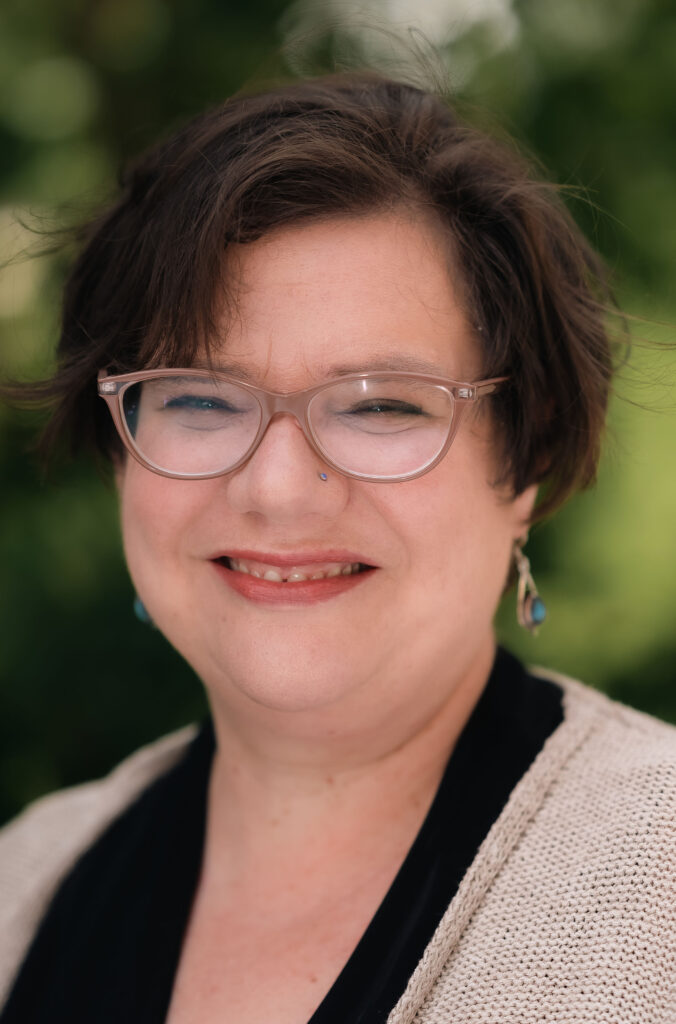Rebecca Price (she/her/hers)
Professor

B.S. Zoology, University of Washington, Seattle
Ph.D. Geophysical Sciences, The University of Chicago
Office: UW2-220
Phone: 425-352–3666
Email: beccap@uw.edu
Twitter: @ProfBeccaPrice
Website: http://faculty.washington.edu/beccap/
Mailing Box: 358530, 11136 NE 180th Street, Bothell, WA 98011-1713
Teaching
I aim to provide a dynamic and interdisciplinary perspective of the natural world. Class time is an opportunity to capture students’ interest, and I constantly adjust my approach to ensure that they are engaged. We use discussions, writing assignments, presentations, and laboratory activities. Course assignments offer the opportunity for me to see what students have learned and how to support them as we move towards learning goals. The most rewarding part of teaching is when students understand a topic that had been intimidating; they become proud, confident, and interested.
Courses Taught
BIS 140 Numbers in News Media
BES 301 Science Methods and Practice
Research/Scholarship
I study how people learn and how people learn to teach, which is taking me to also study faculty and postdoctoral affairs, including diversity in science. Some of my research is based on how college students learn evolution and science in general. I’ve also studied how postdocs learn state-of-the-art and inclusive teaching strategies.
Selected Publications
- Niraula A, Sundaravaradan V, Price RM. 2023. Good Drug, Bad Practice: Tackling the Ivermectin Fiasco. CourseSource. 10. https://doi.org/10.24918/cs.2023.17
- Shukla SY, Theobald EJ, Abraham JK, Price RM. 2022. Reframing Educational Outcomes: Moving beyond Achievement Gaps. CBE-Life Sciences Education. 21: es2. DOI:10.1187/cbe.21-05-0130.
- Price RM, Self CJ, Young WC, Klein ER, Al-Noori S, Ma EY, DeMarais A. 2021. Brief training and intensive mentoring guide postdoctoral scholars to student-centered instruction. CBE-Life Sciences Education. 20: ar64. DOI:10.1187/cbe.21-03-0083.
- Joy JP, Price RM. 2021. Harnessing the power of the immune system: Influenza vaccines. CourseSource. https://doi.org/10.24918/cs.2020.53.
- Ma EY, Al-Noori S, Klein ER, Freisem K, Price RM. 2021. An active learning workshop to teach active learning strategies. CourseSource. https://doi.org/10.24918/cs.2021.36.
- Seah YM, Chang AM, Dabee S, Davidge B, Erickson JR, Olanrewaju AO, Price RM. 2021. Pandemic-related instructor talk: How new instructors supported students at the onset of the COVID-19 pandemic. J. Microbiol. Biol. Educ. 22: doi.org/10.1128/jmbe.v22i1.2401
- Segura-Totten M, Dewsbury B, Lo SM…Price RM…Raut SA. 2021. Chronicling the journey of the Society for the Advancement in Biology Education Research (SABER) in its effort to become antiracist: from acknowledgement to action. Frontiers in Education. https://doi.org/10.3389/feduc.2021.780401.
- McCullough EA, Ma EY, Al-Noori S, Price RM. 2020. STEP Forward: Combining formal and informal education to develop communication skills that augment postdoctoral training. Journal of STEM Outreach. 3: 1-10.
- Price RM. 2020. Starting conversations about discrimination against women in STEM. CourseSource. https://doi.org/10.24918/cs.2020.29.
- Furrow R, Price RM, Thomas A, Yin Y, Benot K. 2020. Vitamin C for colds? Writing LETTERS to synthesize and communicate results from multiple studies. CourseSource. https://doi.org/10.24918/cs.2020.8.
- Price RM, Kantrowitz-Gordon I, Gordon SE. 2018. Biomedical postdoctoral fellows’ discourses on scientific identity. CBE-Life Sciences Education. 17: ar29. DOI:10.1187/cbe.17-08-0177
- Price RM and Perez KE. 2018. Many paths toward discovery: A module for teaching how science works. Journal of College Science Teaching. 47: 78-87.
- Martinková P, Drabinová A, Liaw Y-L, Sanders EA, McFarland JL, Price RM. 2017. Using DIF analysis to reveal potential equity gaps in conceptual assessments. CBE-Life Sciences Education. 16: rm2. DOI:10.1187/cbe.16-10-0307
- McFarland JL, Price RM, Wenderoth MP, Martinková P, Cliff W, Michael J, Modell H, Wright A. 2017. Development and validation of the Homeostasis Concept Inventory. CBE-Life Sciences Education. 16: ar35. DOI:10.1187/cbe.16-10-0305
- Price RM and Perez KE. 2016. Beyond the adaptationist legacy: updating our teaching to include a diversity of evolutionary mechanisms. American Biology Teacher. 78: 101-108. DOI: 10.1525/abt.2016.78.2.101
- Price RM, Pope DS, Abraham JK, Maruca S, Meir E. 2016. Improving students’ understanding of genetic drift and their ability to correct misconceptions: the positive impact of a computer-based simulation. Evolution: Education & Outreach. 9: 1-14. DOI: 10.1186/s12052-016-0059-6
- Price RM, Andrews TM, McElhinny TL, Mead LS, Abraham JK, Thanukos A, Perez KE. 2014. The Genetic Drift Inventory: a tool for measuring what undergraduates have mastered about genetic drift. CBE-Life Sciences Education. 13: 65–75. DOI: 10.1187/cbe.13-08-0159
- Abraham JK, Perez KE, Price RM. 2014. The Dominance Concept Inventory: a tool for assessing undergraduate student alternative conceptions about dominance in Mendelian and population genetics. CBE-Life Sciences Education. 13: 349-358. DOI: 10.1187/cbe.13-08-0160
